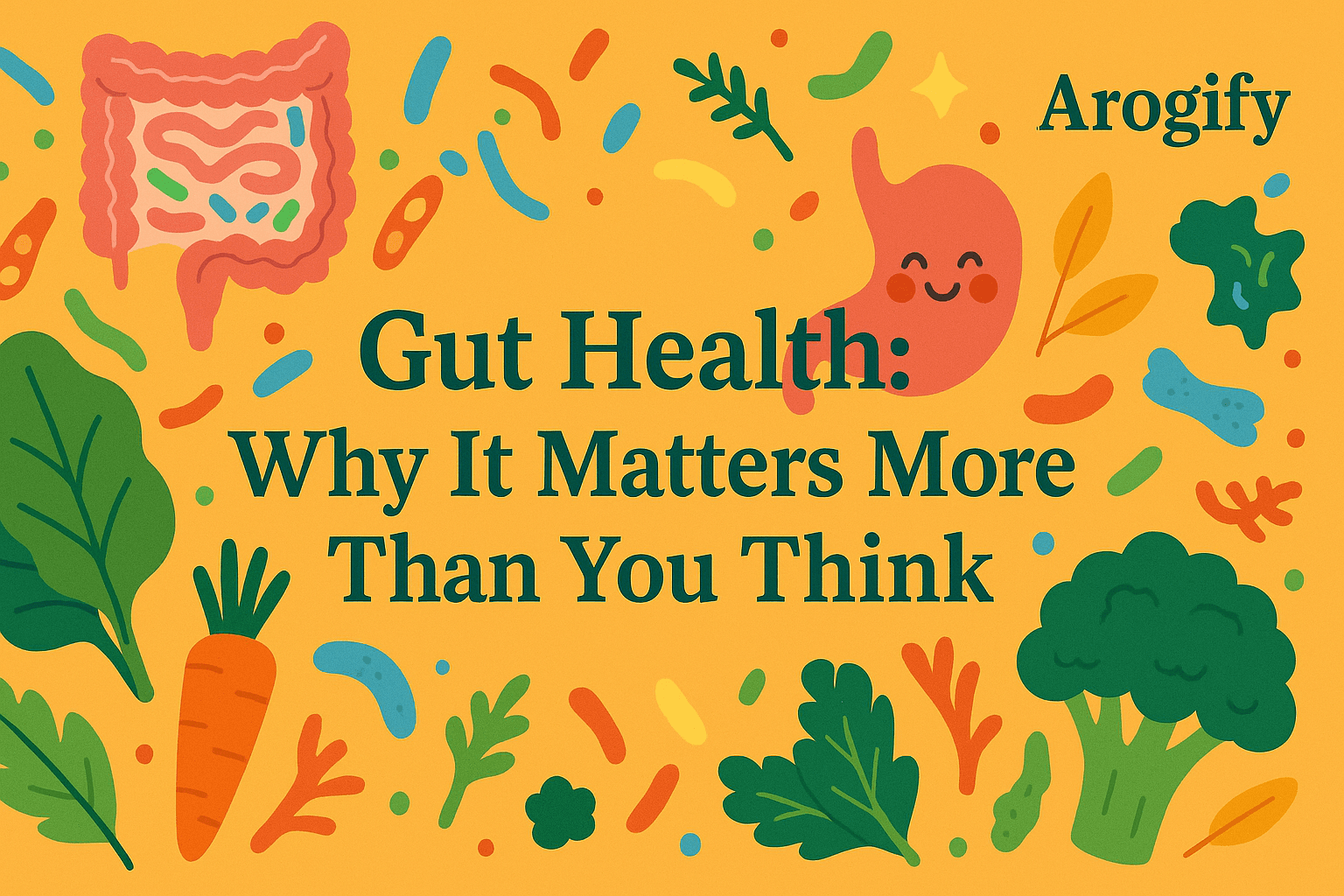Gut Health: Why It Matters More Than You Think

When we talk about health, most people think of fitness, diet, or mental wellness—but gut health is often overlooked. The gut or digestive system—also known as the “second brain”—plays a vital role in maintaining your overall well-being. From the moment food enters your mouth to the time it's expelled, your gut is hard at work, helping digest food, extract nutrients, and support your energy levels.
In this blog, we’ll explore what gut health really means, the role of your gut microbiome, signs your gut might be in trouble, and how to improve gut health naturally.
What is Gut Health?
Gut health refers to the optimal functioning of your gastrointestinal (GI) tract. It involves efficient digestion, nutrient absorption, and a balanced gut microbiome—the community of microbes living in your intestines.
A healthy gut ensures:
- Smooth digestion
- Proper nutrient absorption
- Strong immunity
- Hormonal balance
- Mental clarity and emotional stability
The Gut Microbiome: Your Hidden Health Center
The gut microbiome consists of over 100 trillion microorganisms, including bacteria, fungi, and viruses, residing mostly in your intestines. These microbes:
- Break down complex carbohydrates (like fiber)
- Help absorb vitamins and minerals (e.g., B12, calcium, magnesium)
- Regulate immune function
- Produce neurotransmitters like serotonin (the feel-good chemical)
- Fight harmful pathogens
Your gut flora acts like a control center for your health—impacting digestion, metabolism, mood, and skin.
6 Warning Signs of Poor Gut Health
Recognising poor gut health early can help you prevent more serious issues. Here are common symptoms to watch out for:
Indigestion and Stomach Discomfort
Bloating, gas, acid reflux, or stomach cramps after meals.
Unexplained Weight Changes
Sudden weight loss or gain without changes in your diet or exercise routine.
Fatigue and Low Energy
Constant tiredness—even after a full night's sleep—can indicate nutrient malabsorption.
Frequent Illnesses or Infections
Skin rashes, frequent colds, sore throats, or heightened food sensitivities may stem from gut imbalances.
Bad Breath & Oral Issues
Poor digestion can lead to halitosis (bad breath) and dental health issues.
Mood Swings and Anxiety
Because of the gut-brain connection, poor gut health can contribute to anxiety, depression, and mood instability.
5 Natural Ways to Improve Gut Health
Boosting your digestive health doesn’t require fancy supplements. Here are simple, natural strategies:
Eat a Diverse Diet
Include a variety of fiber-rich fruits, vegetables, whole grains, and legumes to nourish beneficial gut bacteria.
Incorporate Prebiotics and Probiotics
- Prebiotics: Foods like garlic, onion, banana, and oats that feed good bacteria.
- Probiotics: Fermented foods like yogurt, kefir, kimchi, and kombucha that introduce healthy bacteria.
Manage Stress
Chronic stress affects gut motility and microbiota balance. Practice yoga, meditation, or deep breathing.
Stay Hydrated
Drinking enough water supports digestion and prevents constipation.
Avoid Unnecessary Antibiotics
Overuse of antibiotics can wipe out healthy gut bacteria. Only use them when prescribed, and follow up with probiotics.
Conclusion: Why Gut Health is Non-Negotiable
Your gut health is the foundation of your overall health. It doesn’t just help digest food—it supports your immune system, mental well-being, skin health, hormone balance, and more. Neglecting your gut can lead to a range of issues—from bloating and indigestion to anxiety and chronic fatigue.
Taking care of your gut is not just about avoiding stomach issues—it’s about feeling your best, every day.